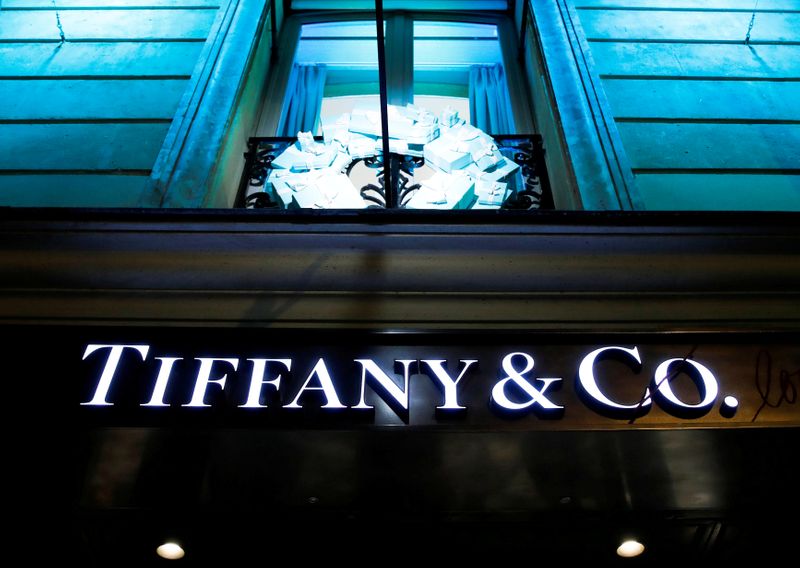(Reuters) - Tiffany & Co (N:TIF), which is being bought by Louis Vuitton owner LVMH (PA:LVMH), on Thursday estimated sales growth of 1% to 3% during the holidays, with the biggest contribution coming from China and a recovery in the Americas.
Last year, holiday sales in Asia-Pacific and the Americas fell 3% and 1% respectively, which Chief Executive Officer Alessandro Bogliolo attributed to a slowdown in tourism and softening demand among locals in its home market.
"We continued to see the Chinese Mainland drive our overall sales growth with a strong double-digit increase, offset by the persisting declines in the Hong Kong market and, to a lesser degree, Japan," Bogliolo said on Thursday.
"We are happy to see sales growth in the Americas, a momentum shift in the region," he added.
Luxury retailers including Tiffany depend on China's burgeoning middle class that has found an appetite for expensive jewelry and handbags, as consumer demand remains subdued in the United States and Europe due to various geopolitical reasons.
Slowing growth in China, mainly due to its prolonged trade war with the United States and a stronger dollar, has impacted sales for Tiffany, which relies on tourists from the world's second-largest economy.
Net sales in Asia-Pacific for the interim holiday period from Nov. 1 to Christmas Eve rose about 5%-7%, the company said. In the Americas, Tiffany expects net sales growth of 2% to 4%.
Sales in Japan, however, fell 9% to 11% during the period, hurt by the recent increase in the consumption tax.
